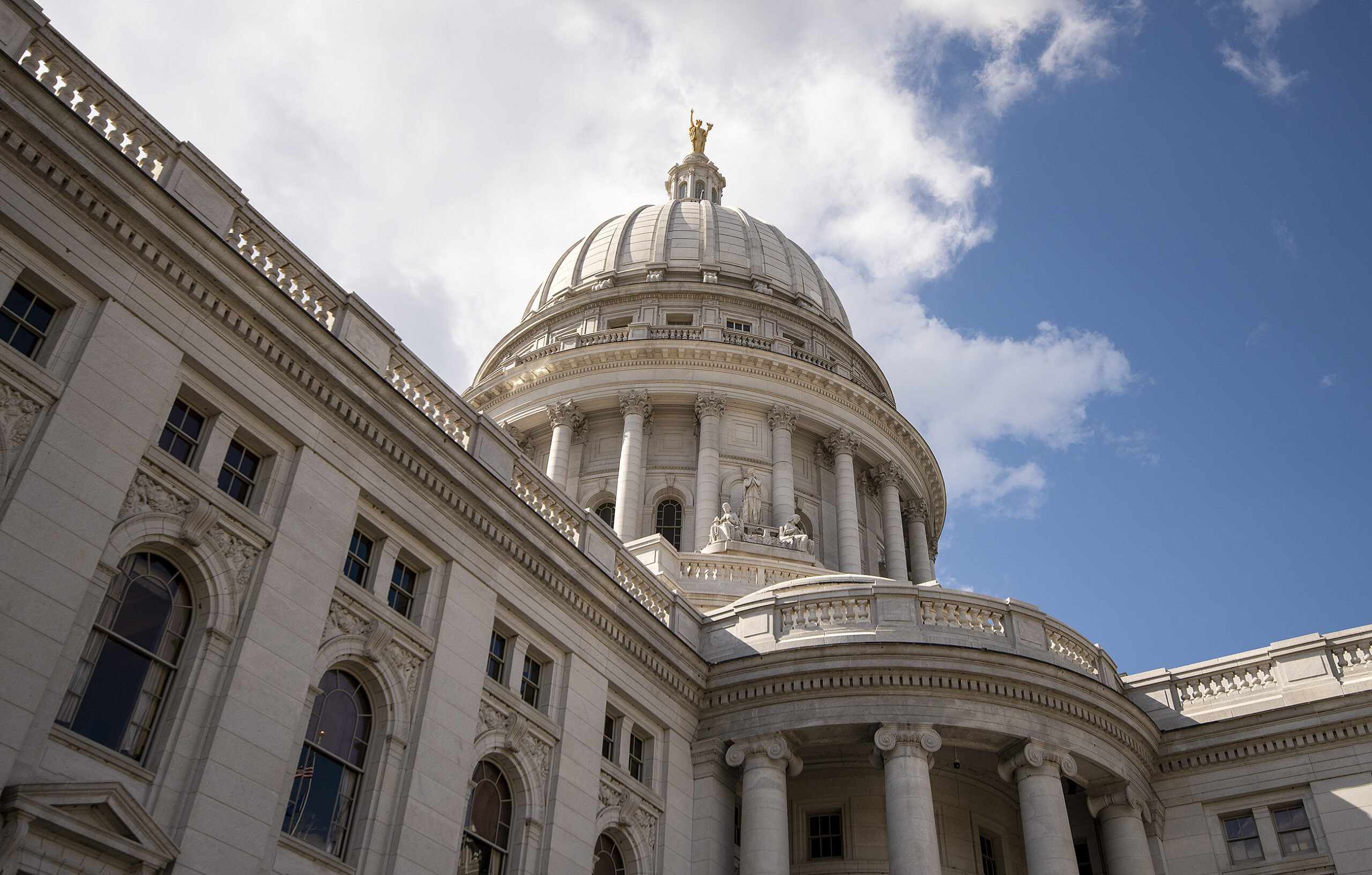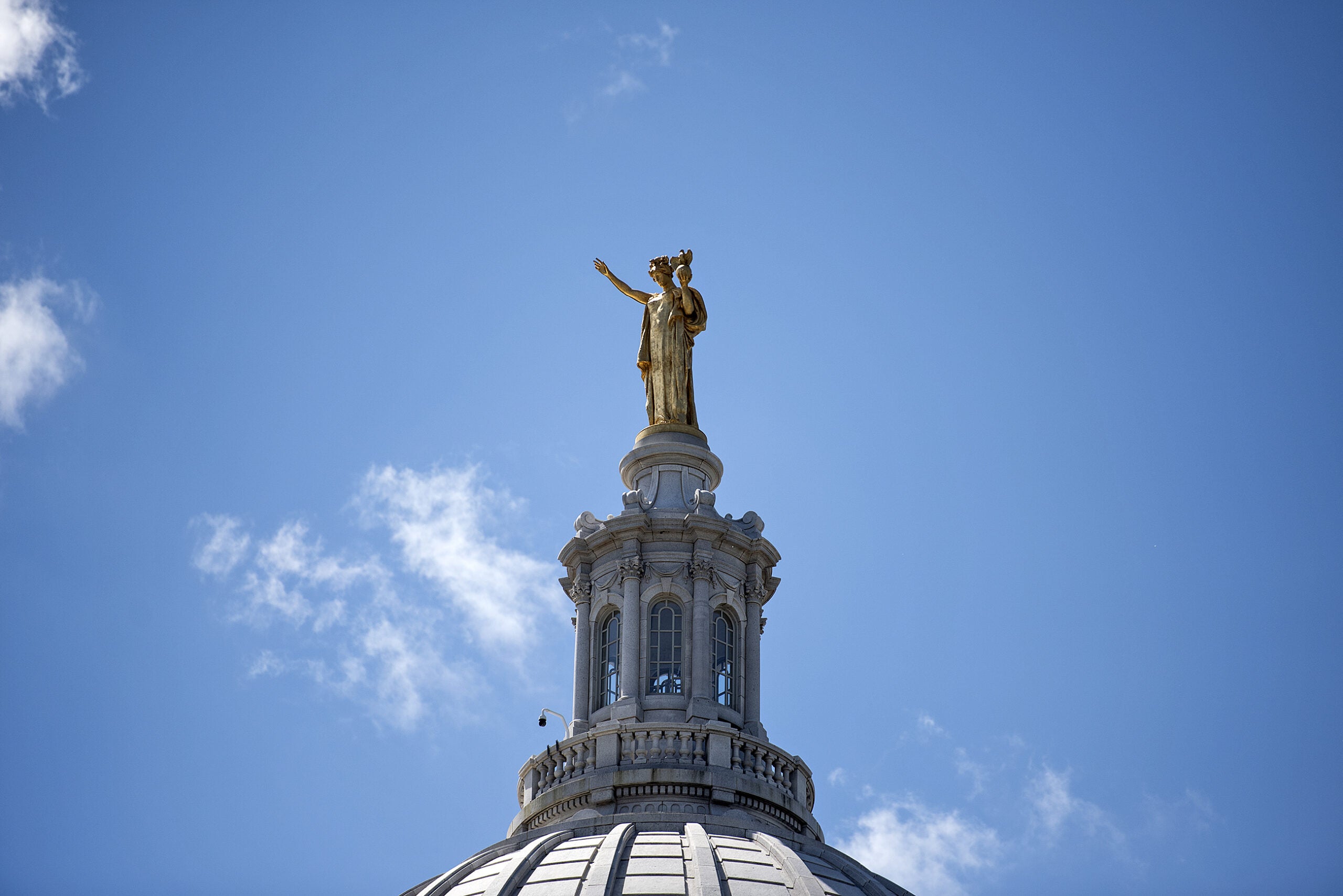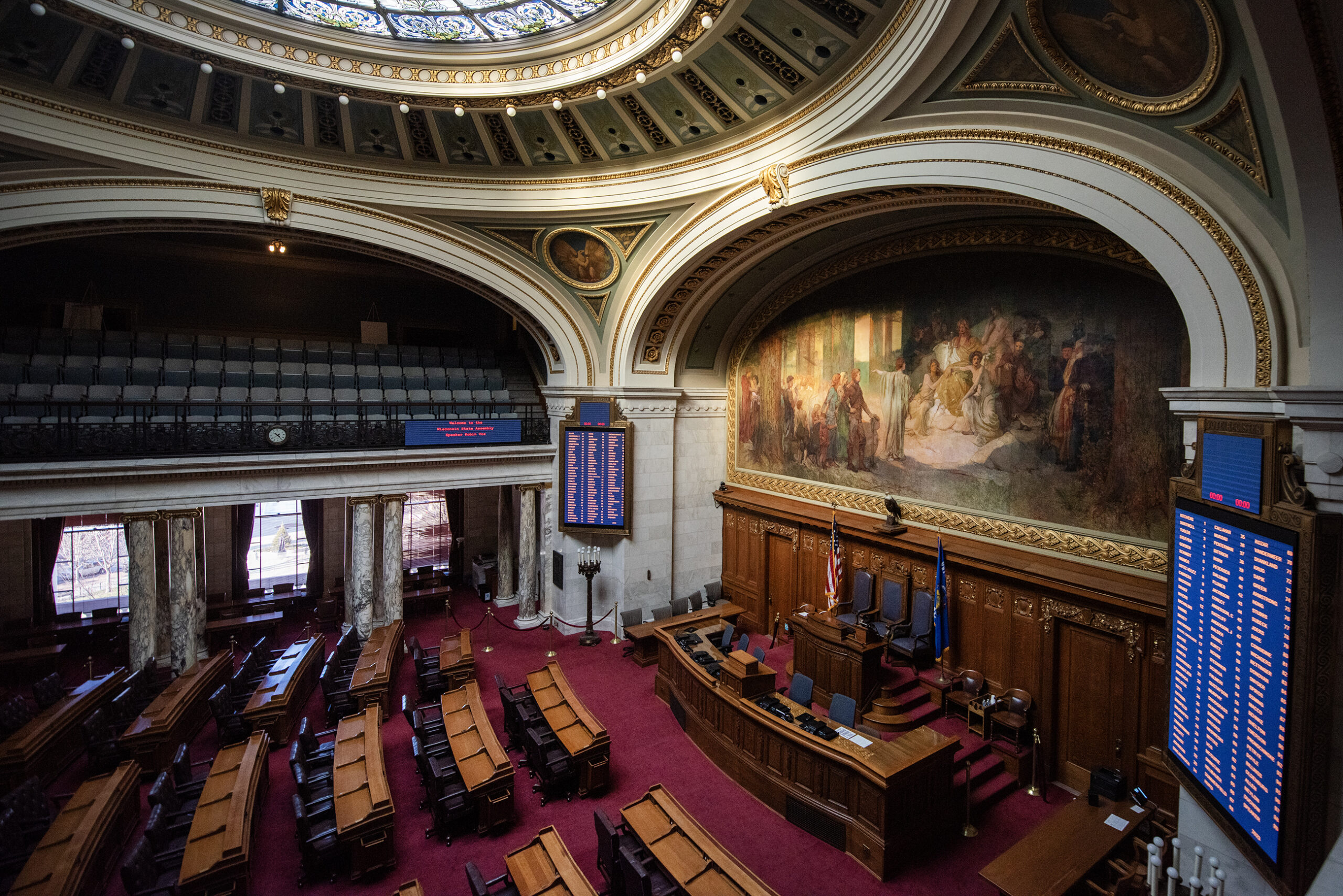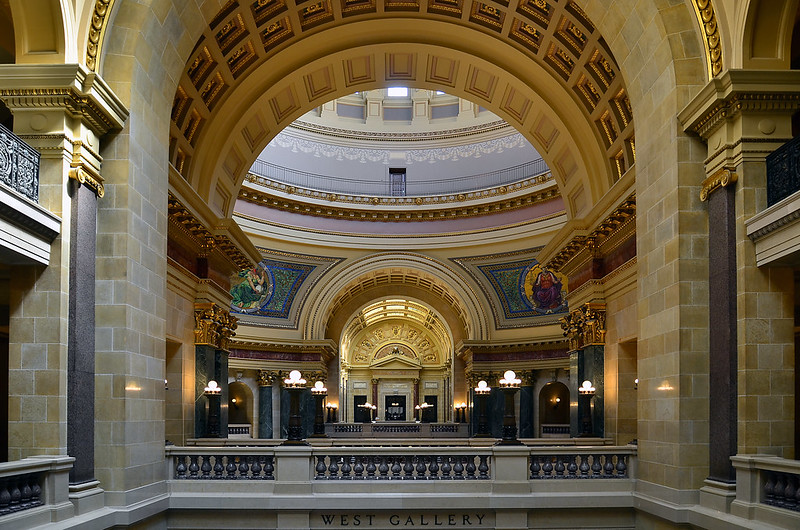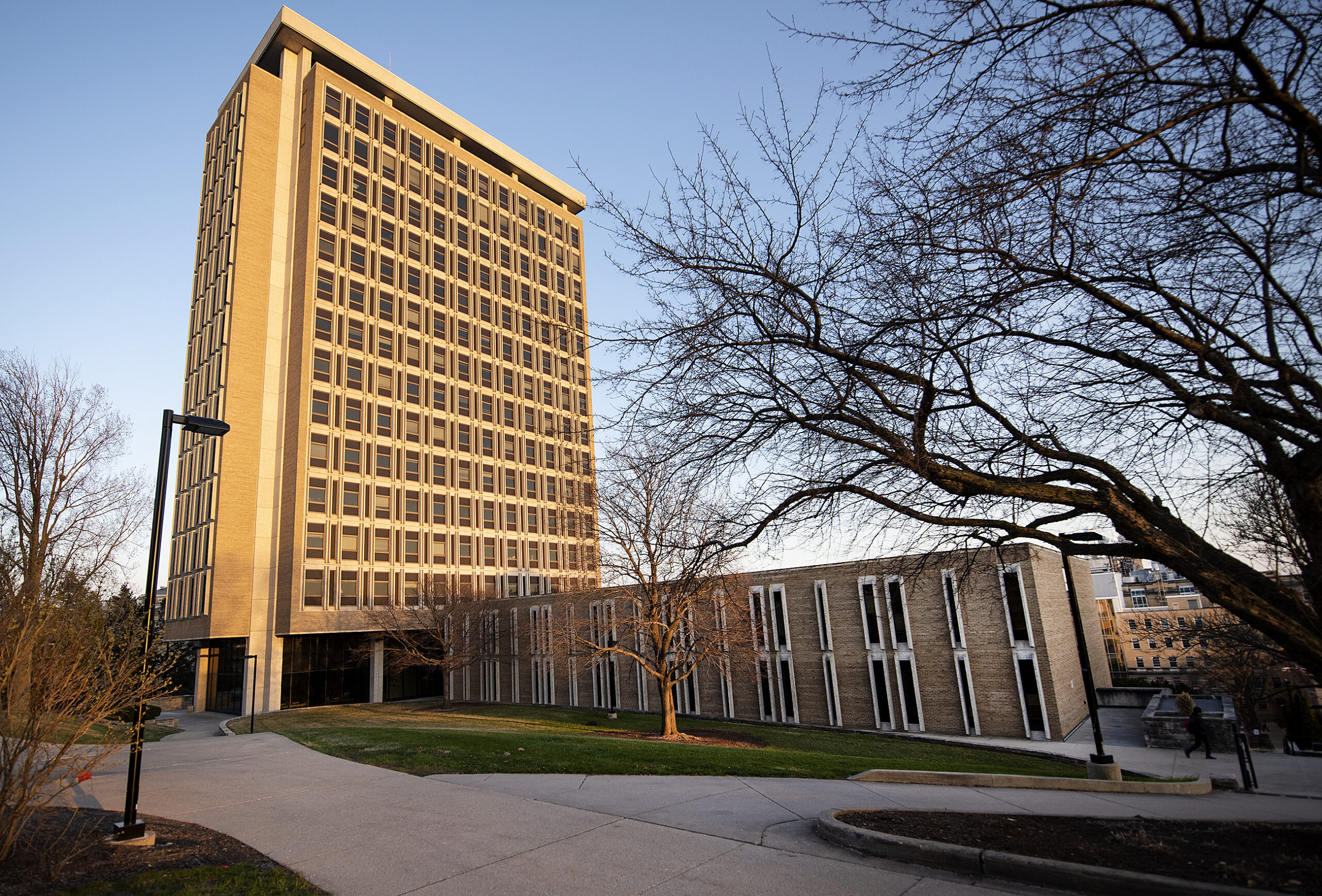Schools with repeated reports of crimes and arrests would be required to hire police officers under a Republican bill that passed the state Assembly Tuesday.
GOP lawmakers also passed a plan that would require public and private high schools to record incidents of violent crime and disorderly conduct on their annual school report cards.
Republicans described both measures as attempts to reclaim safe learning environments, while Democrats attacked them as political ploys designed to stoke fears rather than give schools what they need to solve problems.
Stay informed on the latest news
Sign up for WPR’s email newsletter.
Both plans head next to the state Senate and could eventually be headed toward vetoes by Democratic Gov. Tony Evers.
The bill requiring schools to hire police officers as armed school resource officers would apply to districts where 100 or more incidents occur in public school buildings or on school grounds during a semester, and at least 25 of those incidents result in an arrest. Under the bill, “incident” would include state and local disorderly conduct laws as well as crimes like sexual assault and battery.
“If you want to stop a crime in school, happening in school, bring an officer into that building,” said Rep. Ron Tusler, R-Harrison.
Rep. LaKeshia Myers, D-Milwaukee, a former teacher, said the GOP bill was aimed at public schools in Madison and Milwaukee. Both districts voted to end their contracts with police in 2020 following the police murder of George Floyd, arguing that students of color were not treated equally by police.
“If your local school district can make their own decisions, why can’t mine?” Myers said.
The plan would require the state Department of Public Instruction to partially reimburse school that enter into contracts with police officers using funding from the federal American Rescue Plan Act of 2021, or ARPA. Evers vetoed numerous bills involving ARPA funding last session. Under current law, the authority over how to spend those funds rests with the governor.
The plan passed on a near-party line vote, with Rep. Scott Johnson, R-Jefferson, joining Democrats to vote against it.
The measure requiring schools to report incidents like disorderly conduct on their annual report cards also divided lawmakers, with Democrats arguing it did nothing to keep schools safe.
“This bill is nothing but school security theater,” said Rep. Deb Andraca, D-Whitefish Bay. “Our schools deserve so much better than this.”
Republicans argued the plan was about giving parents information.
“This is not a school safety bill,” said Rep. Cindi Duchow, R-Town of Delafield. “This is a parent community transparency bill.”
That proposal passed along party lines. Evers vetoed a similar plan last year, saying that because the crime of “disorderly conduct” is defined locally, it could lead to inconsistent reporting from district to district.
Republicans vote to continue allowing ‘conversion therapy’
Republicans also used a procedural maneuver to again block rules banning so-called conversion therapy, which seeks to change the sexual orientation or gender identity of lesbian, gay, bisexual or transgender people.
A state licensing board adopted rules to ban the practice in 2020, but Republicans on the Joint Committee for Review of Administrative Rules voted to block the ban from taking effect.
Rep. Greta Neubauer, D-Racine, who is gay, told colleagues she has a transgender younger sister, calling this issue deeply personal for her and her family.
“And it’s personal for my community, where I know many LGBTQ young people who truly struggle to make it through the day knowing the threats that they face now that more and more policies are being proposed around the country that discriminate against them, and target them for who they are,” Neubauer said.
Republicans did not speak during debate. They blocked the conversion therapy ban by sending a bill that would permanently overturn it back to a committee, a procedural maneuver that lets them sidestep a governor’s veto. They used similar tactics to block the ban last legislative session.
Republicans used a similar approach to block a Wisconsin Elections Commission rule providing guidance to local clerks on filling in missing information on a witness certificate for an absentee ballot. That vote effectively upholds a ban on the practice in effect since last year.
Assembly passes Black History Month resolution
Lawmakers unanimously passed a Black History Month resolution, a milestone of sorts in a state where the measure has sparked intense controversy in recent years.
“It is a long time coming, but this resolution — even though it is the month of March — it still speaks truth that Black history is American history,” said Rep. Dora Drake, D-Milwaukee. “Not just in February, but every single month and every day.”
Republicans had objected to Black History Month resolutions starting in 2019 when the Legislative Black Caucus called for honoring Colin Kaepernick, the Milwaukee-born athlete and former NFL quarterback who became known for his outspoken stand against police violence.
This year’s resolution did not name Kaepernick, but instead honored seven Black Wisconsinites, including Paul Higginbotham, the first African-American judge to serve on the Wisconsin Court of Appeals, Marcia Anderson, a Beloit native who became the first African-American woman to become a major general in the United States Army Reserve, and Alonzo Robinson, Jr., Wisconsin’s first Black registered architect.
The resolution passed on a voice vote.
Wisconsin Public Radio, © Copyright 2024, Board of Regents of the University of Wisconsin System and Wisconsin Educational Communications Board.

